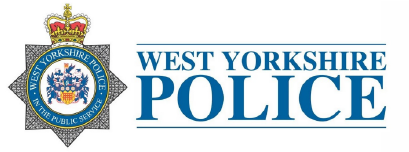Becoming a Volunteer
Volunteering with Restorative Justice West Yorkshire will fundamentally involve gaining valuable knowledge and skills, in order to facilitate restorative processes.
Initially, your role as a Volunteer Restorative Justice Facilitator will be to co-facilitate the delivery of the Hate Crime Awareness Courses and the Violent Crime Awareness Courses (including the hate crime and violent crime awareness courses that have been adapted for offences against emergency workers).
You will receive full training and, once you have experience in this area of Restorative Justice, you will be invited to attend a further two-day training course, where the outcome will be that you become a Volunteer Restorative Justice Practitioner.
You will then be able to work directly with those that have been harmed by crime or conflict and those responsible for causing that harm. Our aim is to enable communication to take place and allow everyone affected by an incident to play a part in trying to repair harm and find a positive way forward. This may be through facilitation of a face-to-face restorative conference, an indirect process managed by a practitioner or meeting with someone to hear their views and thoughts about what has happened.
Involvement in sensitive and complex case work, where the offence/incident or harm caused is more serious, is often something practitioners aim for. Once a Volunteer Practitioner has gained sufficient experience, they can be offered specialist training, in order to co-facilitate these cases with another more experienced practitioner.
Volunteer Practitioners will also have the opportunity to work in partnership with, and alongside, professionals within the Criminal Justice System and their local communities.
What time commitment is needed?
We are looking for volunteers who are able to commit to working at least two hours per week.
All volunteers are required to attend the following:
- a one-day introduction to RJ training course
- three induction sessions
- six-monthly one-to-one supervision meetings
- monthly (one-hour) practice sessions
This is to ensure case work is in line with safe and best practice, as directed by the Restorative Justice Council’s Restorative Practice Guidance 2020.
Appointments with those participants in the Restorative Justice process are flexible to meet their needs and, as such, they can be during the day, in the evenings or at weekends.
Who are we looking for?
We are seeking volunteer practitioners who:
- Are over 18 years old
- Are organised and able to prioritise their work
- Work on their own initiative
- Can be flexible and responsive to change
- Are reliable, punctual and hardworking
- Have an approachable and friendly manner
- Can remain impartial
Background checks:
- All volunteers will be subject to vetting by West Yorkshire Police - please note that previous convictions do not necessarily exclude anyone from applying for this role, each case will be assessed on an individual basis by West Yorkshire Police
- All volunteers will be expected to provide two references.
What support and training is provided?
Initially, you will be expected to attend a one-day introduction to RJ training course and three induction training sessions, which will introduce you to the organisation and also the Hate Crime and Violent Crime Awareness Courses.
Upon completion of the training in delivering courses, volunteers can then progress and attend a further two-day training course, where the outcome will be that you will become a Volunteer Restorative Justice Practitioner. This will equip you with the skills necessary to facilitate restorative processes.
Ongoing guidance and mandatory training, such as Data Security and GDPR, Safeguarding, Risk Assessment and Trauma Awareness is available in various formats, such as e-learning, workshops and full training sessions, either face-to-face or virtually. Other opportunities for training and development are also available.
Six-monthly one-to-one meetings and/or group supervision sessions will support all Volunteer Practitioners. Case supervision is carried out in accordance with the Restorative Justice Council’s Restorative Practice Guidance (2020) when a Volunteer Practitioner is leading on a case(s).
What skills do I need?
It is essential that you have an interest in working with victims of crime/harm and those who have caused harm. You will also need:
- Basic IT skills
- The ability to read and write to a good standard of English
- Good listening and verbal communication skills
- The ability to self-reflect and respect feedback from others
- The ability to work within the values and aims of RS
- Adhere to Restorative Justice policies and procedures
What skills will I learn and what are the benefits for me?
Volunteers will have the opportunity to:
- Gain skills and experience in facilitating restorative processes
- Learn transferable skills, such as good communication, report writing, conflict resolution and self-reflection
- Learn about the work of criminal justice agencies and other partnership agencies, such as Victim Support
- Lead and support others by giving talks to various agencies about restorative practice and the processes involved
- The opportunity to work with like-minded people
- Contribute to our valuable work and feel like you have made a difference
- Help those harmed by crime or conflict to find a positive way forward from what has happened to them
- Assist those who have caused harm to explore ways in which they can repair the harm they have caused
Applying for a Volunteer post
Thank you for your interest in volunteering with RJ West Yorkshire. If you're interested in applying, then please read the information document and then complete the application form and return this to rjwestyorkshire@restorativesolutions.org.uk and we will be in touch with you when we are next recruiting volunteers for the organisation.



